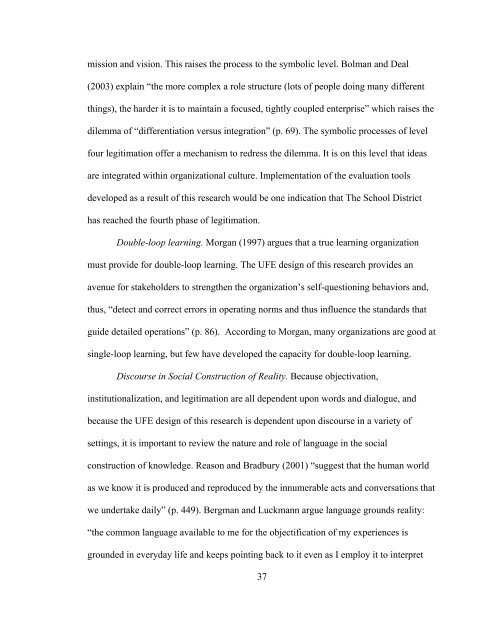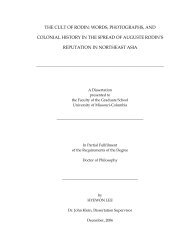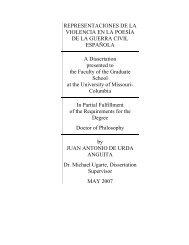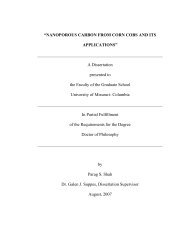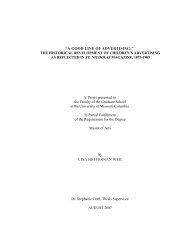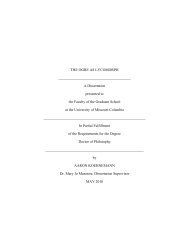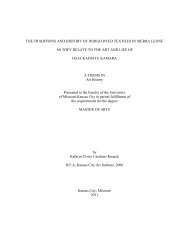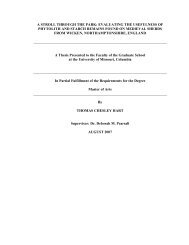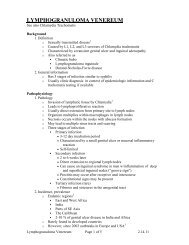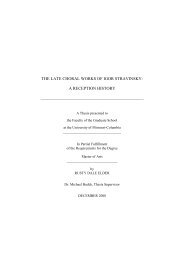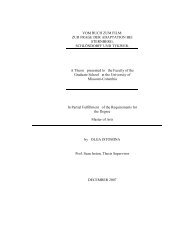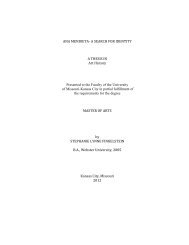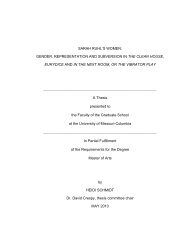Social Construction of Reality - Bad Request
Social Construction of Reality - Bad Request
Social Construction of Reality - Bad Request
You also want an ePaper? Increase the reach of your titles
YUMPU automatically turns print PDFs into web optimized ePapers that Google loves.
mission and vision. This raises the process to the symbolic level. Bolman and Deal<br />
(2003) explain “the more complex a role structure (lots <strong>of</strong> people doing many different<br />
things), the harder it is to maintain a focused, tightly coupled enterprise” which raises the<br />
dilemma <strong>of</strong> “differentiation versus integration” (p. 69). The symbolic processes <strong>of</strong> level<br />
four legitimation <strong>of</strong>fer a mechanism to redress the dilemma. It is on this level that ideas<br />
are integrated within organizational culture. Implementation <strong>of</strong> the evaluation tools<br />
developed as a result <strong>of</strong> this research would be one indication that The School District<br />
has reached the fourth phase <strong>of</strong> legitimation.<br />
Double-loop learning. Morgan (1997) argues that a true learning organization<br />
must provide for double-loop learning. The UFE design <strong>of</strong> this research provides an<br />
avenue for stakeholders to strengthen the organization’s self-questioning behaviors and,<br />
thus, “detect and correct errors in operating norms and thus influence the standards that<br />
guide detailed operations” (p. 86). According to Morgan, many organizations are good at<br />
single-loop learning, but few have developed the capacity for double-loop learning.<br />
Discourse in <strong>Social</strong> <strong>Construction</strong> <strong>of</strong> <strong>Reality</strong>. Because objectivation,<br />
institutionalization, and legitimation are all dependent upon words and dialogue, and<br />
because the UFE design <strong>of</strong> this research is dependent upon discourse in a variety <strong>of</strong><br />
settings, it is important to review the nature and role <strong>of</strong> language in the social<br />
construction <strong>of</strong> knowledge. Reason and Bradbury (2001) “suggest that the human world<br />
as we know it is produced and reproduced by the innumerable acts and conversations that<br />
we undertake daily” (p. 449). Bergman and Luckmann argue language grounds reality:<br />
“the common language available to me for the objectification <strong>of</strong> my experiences is<br />
grounded in everyday life and keeps pointing back to it even as I employ it to interpret<br />
37


